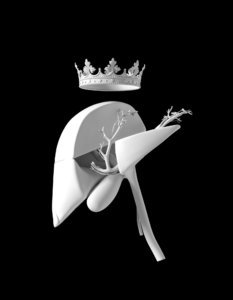One of the most casually used terms in the wellness industry is “toxins”.
Prior to studying basic physiology, I was also guilty of throwing this word around. So what are these insidious particles that accumulate in our bodies and can only seemingly be eradicated by expensive supplements, treatments or looking at a full moon while eating a gluten-free muffin?
As an advocate and practitioner of acupuncture, I see it as my responsibility to educate both patients and the public, and sometimes that means calling out BS. (Disclaimer, the NYT has a history of writing trash op-eds, but I will give credit where it’s due, and this article written by a doctor makes some salient points.)
I agree with the doctor that the wellness industry, in recent years, has undermined the trust of consumers and capitalized on their fears and desperation. When you combine the high cost of medical care with the equally high hopes of alternative cures, it’s easier to exploit a vulnerable group of potential customers.
“For without these toxins there can be no search for purity — “clean” tampons, “clean” food, “clean” makeup. There are also sacred acts and rituals to follow, and if you have unlocked the right achievement level you will release your inner goddess.”
To answer the toxin question, I will quote Jim Gallard MD, excerpt from his article in EMERGENCY MEDICINE NEWS.
A toxin is defined in medical dictionaries and in microbiology and biochemistry textbooks as “a poison; frequently used to refer specifically to a protein or conjugated protein substance produced by some higher plants, certain animals, and pathogenic bacteria that is highly toxic for other living organisms. Such substances are differentiated from the simple chemical poisons and vegetable alkyloids by their high molecular weight and antigenicity.”
A funny thing, the English language. If a word is incorrectly used by enough of the population for a long enough time, the word takes on a new, correct meaning. I don’t think, however, toxin is there yet.2
So, are toxins real, clearly, do they require supplements or medical intervention — likely not, unless your liver is not functioning optimally. Only second to the brain, the liver performs over 300 functions for the body, it’s main ones being:
- to filter blood received from the digestive tract
- detoxify chemicals and metabolize drugs3

In terms of (TCM) Traditional Chinese Medicine, the liver has a very specific set of functions, that slightly differ but are analogous to it’s biomedical ones. If you’re curious, Chinese medicine Living has a fairly comprehensive description of how TCM views the liver.
It’s quite an extraordinary organ and our largest, weighing in at an average 3 1/2 lbs.
“In one recent study, researchers were astonished to discover that the liver grows and shrinks by up to 40 percent every 24 hours, while the organs around it barely budge.” While others can fail and be replaced artificially, the liver can not.
Am I saying that all supplements and treatments that promote a cleansing type of action are useless — no! What I am saying is, with this rudimentary understanding of the liver and toxins, I hope you are able to apply a more discerning view on what you deem necessary for your health and wallet.
Credit: artwork by Eddie Guy http://www.eddieguy.net/guy/co/
References
1https://www.nytimes.com/2018/08/01/style/wellness-industrial-complex.html
2https://journals.lww.com/em-news/Fulltext/2001/06000/The_Definition_of_Toxin.12.aspx
3https://www.nytimes.com/2017/06/12/health/liver-bodily-function.html

